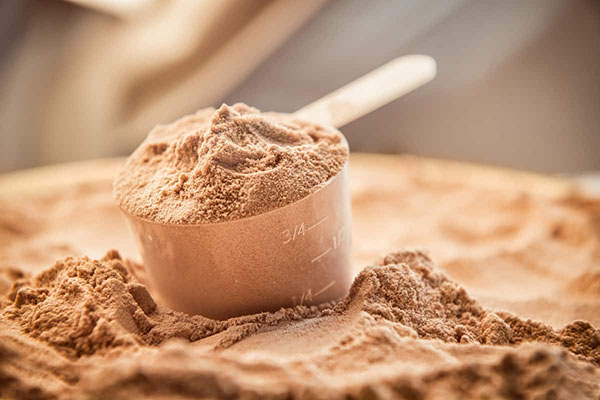When I was a teenager hitting the gym for the first time, I remember staring at the giant tubs of whey protein at GNC and thinking, “Wait… could this actually make me taller too?” It sounds a little funny now, but it’s a question I still hear all the time—especially from teenagers, athletes, and even parents who are trying to figure out what’s fact and what’s fitness folklore.
You see, in American fitness culture, protein shakes have almost become a rite of passage. Every high school weight room, every college rec center, every CrossFit box—you’ll find someone sipping on a shaker bottle. With that popularity comes a flood of online claims: some say whey protein builds muscle (true), others hint it might boost your height (not so simple). And with diet trends, growth myths, and TikTok influencers all in the mix, it’s easy to get confused.
So, does whey protein actually have anything to do with growing taller—or is that just another supplement myth? Well, that’s exactly what we’re going to unpack next.
What Is Whey Protein?
If you’ve ever opened a tub of protein powder and wondered what’s actually inside, here’s the simple version: whey protein comes straight from milk. When milk is processed to make cheese, it separates into two parts—curds (the solid stuff) and whey (the liquid that’s left over). That leftover liquid is then filtered, dried, and turned into the powders we see everywhere today. Funny enough, it used to be considered waste in the dairy industry before sports nutrition companies realized how rich it was in protein.
Now, whey protein is everywhere in the U.S.—from Optimum Nutrition’s gold tubs to Muscle Milk bottles stacked in gas stations. The reason is pretty clear: it’s packed with amino acids that help muscles recover and grow. You’ll often hear people comparing whey concentrate and whey isolate; the difference mainly comes down to how much filtering is done. Isolate is lighter on lactose (better for sensitive stomachs), while concentrate usually has a creamier taste and slightly more nutrients left intact.
What I’ve found is that most people don’t choose whey just for bodybuilding—it’s also a quick way to hit daily protein goals without cooking another chicken breast. And that’s why it’s stayed at the center of American fitness culture for decades.
Protein’s Role in Growth and Development
When I was younger, I used to think chugging protein shakes might make me taller (I mean, it made sense in my head—more protein, more growth, right?). But here’s the thing: protein doesn’t stretch your bones beyond what your genetics already allow. What it does do is support the body in ways that are essential during growth years.
Protein is the building block for muscles, tissues, and even bone density. It delivers essential amino acids that help repair tiny muscle tears after exercise, fuels cell metabolism, and supports collagen formation. In teenagers especially, it’s critical because growth hormones and rapid development demand a steady supply of nutrients. Without enough protein, you might not reach your full potential height—not because protein adds inches, but because a deficiency can hold you back.
What I’ve found over the years is that balanced intake matters most. Pairing protein with calcium-rich foods improves bone strength, and keeping your diet varied helps everything—from energy levels to recovery. So no, protein won’t magically make you taller, but it will help you build a stronger, healthier foundation to grow into your best self.

Can Whey Protein Make You Taller?
I’ll be straight with you—no, whey protein won’t make you taller once your growth plates have closed. That’s just how human biology works. Height is mostly locked in by genetics, and after puberty, those bone plates fuse, meaning no supplement (not even the fanciest protein powder on the shelf) can stretch you an extra inch.
Now, during adolescence, it’s a bit different. Protein—whey included—does play an important role in helping the body maximize its growth potential. Think of it like fuel: it supports bone development, muscle repair, and overall recovery. In fact, some clinical studies show that kids with low protein intake can fall short of their natural growth curve. So if a teenager pairs whey protein with a balanced diet full of calcium, vitamins, and whole foods, they’re giving their body the best shot at reaching its genetic height.
What I’ve found is that a lot of the “protein makes you taller” talk comes from confusing muscle gains with vertical growth. You might bulk up, sure, but taller? Not so much. My advice? Use whey as a tool for strength, recovery, and good nutrition—not as a magic shortcut for extra inches.
Myths vs Facts: Whey Protein and Height
I can’t tell you how many times I’ve scrolled through TikTok or bodybuilding forums and seen wild claims about whey protein—everything from “it’ll stunt your growth” to “drink two scoops a day and you’ll grow taller.” Honestly, most of that is just noise.
Here’s the fact: whey protein doesn’t stunt growth, and it doesn’t make you taller either. What it does is give your body the amino acids it needs for muscle recovery, tissue repair, and general strength. Growth plates (those little zones at the ends of your bones) determine height, and once they close after puberty, no supplement can change that. The only way protein affects height is indirectly—if a teenager is protein deficient, they might not reach their natural growth potential.
What I’ve found is that supplement marketing sometimes blurs the line between muscle gains and actual growth. It’s easy to confuse looking bigger with getting taller (I made that mistake too back in high school). My advice? Treat whey protein as a tool for better nutrition, not as some magic potion. The truth is way less dramatic, but a lot more reliable.

Whey Protein and Teenagers in the US
You know, one thing I’ve noticed coaching kids in school athletics is how often whey protein shows up in their gym bags. It’s become almost a badge of “I’m serious about sports.” And I get it—protein powder feels like a quick way to build strength. But here’s the thing: teenagers aren’t mini adults. Their energy needs are different, and their bodies process nutrients in ways that don’t always line up with what you see on a supplement label.
What I’ve found is that many parents worry about whether whey protein is even safe for teens. Honestly, that concern is valid. Overconsumption can stress the kidneys and crowd out real food that provides vitamins, fiber, and all those little things powders can’t replace. The CDC emphasizes balanced meals first—lean meats, eggs, beans, dairy—before anyone under 18 turns to supplements.
Now, I’m not saying whey has no place. For US teen athletes with busy schedules, a safe dosage—something dieticians or pediatricians can help calculate—can be a convenient tool. But it should never replace the basics: breakfast before school, snacks after practice, family dinners. If there’s one lesson I’ve learned working around young athletes, it’s this: performance comes from habits, not scoops of powder. Parents, coaches, and healthcare providers all play a role in keeping that balance steady.
Healthy Alternatives to Support Growth
I used to think height was all genetics, but over the years I’ve seen how much lifestyle plays into it. You can’t change your DNA, sure, but you can give your body the best shot at reaching its potential. And honestly, most of it comes down to really simple, everyday habits.
Here’s what I’ve found works best when you’re trying to build a natural growth diet without overcomplicating it:
- Dairy for calcium and vitamin D – I still keep a carton of milk in my fridge because strong bones need that steady supply. Yogurt’s another go-to, especially when I don’t feel like cooking.
- Lean meats and legumes – Chicken, beans, lentils… all excellent for protein, which is literally the building block for growth. I’ve learned the hard way that skipping protein-rich foods leaves me sluggish.
- Whole grains for lasting energy – Oatmeal in the morning keeps me going way longer than sugary cereal ever did. That slow-release energy really matters.
- Hydration – Sounds basic, right? But I can tell you, nothing derails a workout or a growth spurt like dehydration.
- Sleep and exercise – Growth hormones kick in during deep sleep, and consistent exercise keeps bones and muscles responding.
What I think really matters is consistency. No magic pill, no secret recipe—just good food, good rest, and a rhythm your body can count on. And the best part? Anyone can start today, even with small tweaks.
Choosing the Right Whey Protein
When I first started looking at whey protein tubs at Costco, I remember feeling totally lost—rows of giant containers with flashy labels, promises of “ultra purity” or “extreme gains.” It felt like buying cereal, but with a lot more pressure. What I’ve learned since then is that the label tells you more than the front cover does. Always flip the container around.
Here’s what works for me when picking the best whey protein in the USA:
- Look for third-party testing – NSF Certified or Informed Choice stamps mean someone outside the company checked it. That’s huge for safety.
- Stick with trusted brands – Optimum Nutrition, Muscle Milk, or even GNC’s house label. I’ve tried sketchy online powders before—never again.
- Check serving size – One scoop isn’t always the same across brands. Some are packed with fillers; others are clean protein.
- Buy smart – Costco deals are great if you go through it quickly, but Amazon and local supplement shops often run sales too.
Now, the FDA doesn’t pre-approve supplements, so you’ve got to be your own watchdog. My takeaway? Don’t get swayed by marketing hype—pick safe whey supplements that are transparent about testing and dosage. Your body (and your wallet) will thank you later.
Final Takeaway: Does Whey Protein Make You Taller?
Well, here’s the bottom line I’ve come to after years of seeing the same question pop up: whey protein doesn’t make you taller. It can definitely support growth if you’re still in that window—teens, maybe early twenties—because it gives your body the building blocks it actually needs. But once your growth plates close, no shake, no supplement, no “secret hack” is going to rewrite your genetics.
Now, I’ve seen plenty of myths floating around—usually in gym locker rooms or online threads—that make whey sound like a magic growth formula. Truth is, it’s just a high-quality protein source. Think of it like gas for a car: it’ll help the engine run well, but it won’t suddenly turn a sedan into a truck. What matters far more is a balanced lifestyle—sleep, movement, a healthy diet—and of course the blueprint your parents handed down.
So, if you’re in the U.S. and weighing your options, I’d say keep whey protein in your routine if it fits your nutrition needs. But don’t expect it to stretch your frame. Instead, focus on overall wellness and smart health choices—that’s where your real growth potential lies (even if it’s not in inches).
Hi there! My name is Erika Gina, and I am the author of Choose Supplement, a website dedicated to helping people achieve their height goals naturally and effectively. With over 10 years of experience as a height increase expert, I have helped countless individuals increase their height through diet, exercise, and lifestyle changes.
My passion for this field stems from my own struggles with being short, and I am committed to sharing my knowledge and experience to help others overcome similar challenges. On my website, you will find a wealth of information and resources, including tips, exercises, and product reviews, all designed to help you grow taller and improve your confidence and overall well-being. I am excited to be a part of your height journey and look forward to supporting you every step of the way.
Name: Erika Gina
Address: 2949 Virtual Way, Vancouver, BC V5M 4X3, Canada
Email: [email protected]
